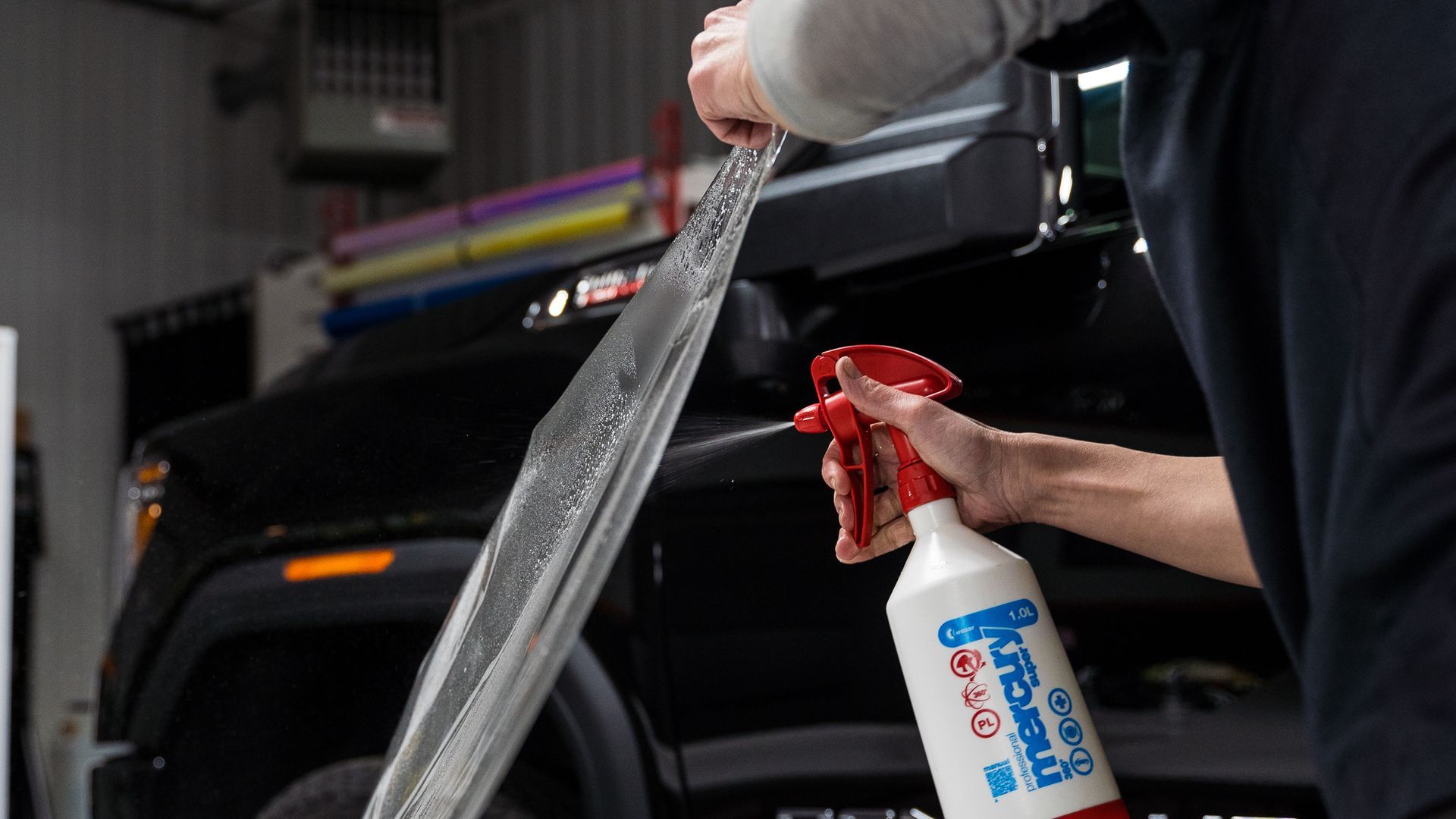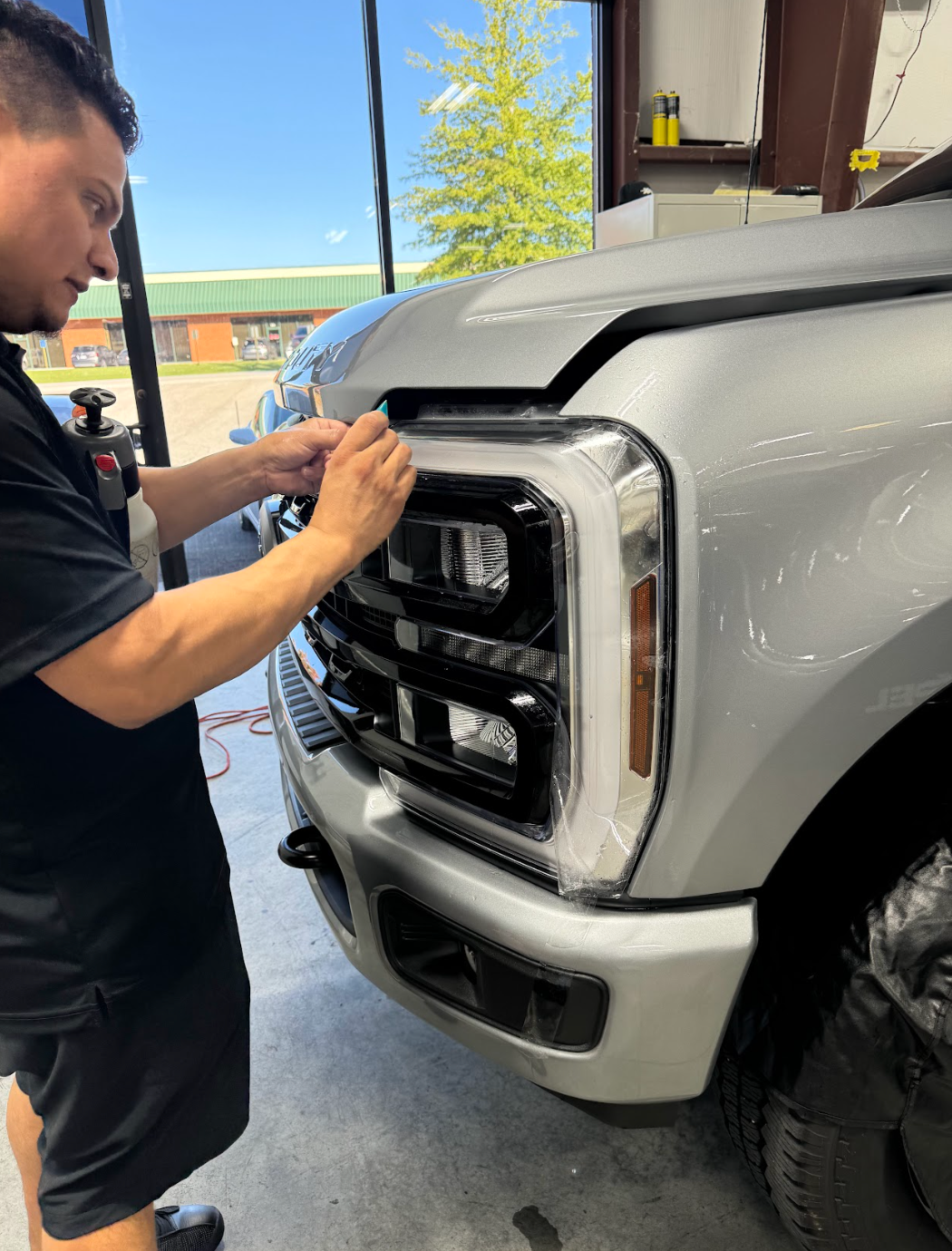How Ceramic Coating Protects Your Boat from Saltwater Damage
Tired of spending money on boat paint jobs every few seasons only to have them ruined by moisture and salt air? Ready to beach your boat with confidence that it'll sail out looking just as good as it did when it arrived? Look no further than a marine ceramic coat—the perfect companion for both avid and recreational boaters alike!
Not only does a
marine ceramic coating protect your boat from saltwater, but it also creates a strong, smooth surface that will help keep it clean and can add a glossy finish to your boat's exterior that's sure to draw admiring glances. This blog will tackle how to protect your boat from saltwater with a ceramic coating, exploring the steps and tips to get the smoothest, longest-lasting marine finish possible.
Understanding the Benefits of Ceramic Coating for Boats
Investing in a ceramic coating for your boat is an excellent way to protect it from the elements and extend its life. Ceramic coatings are composite materials, primarily composed of titanium dioxide, that affect the sealant's strength and properties. This prevents saltwater impacts from corroding, staining, or degrading your vessel's surface.
Consulting with a marine detailer can help you find the ideal marine ceramic coat for your specific needs.
Let's take a look at some of the main benefits that come with a ceramic coating for your boat:
- Durability: Compared to traditional methods such as waxing or polishing your boat, ceramic coatings exhibit far better durability over time. This is because this sealant actually bonds to the surface and forms a layer that guards against any environmental damage or wear and tear.
- Protection Against UV Rays: The harsh rays originating from the sun can be tremendously damaging to the smooth exterior of a boat. Fortunately, ceramic coatings provide added protection from those harmful UV rays. With the additional layer of defense, you won't have to worry about wear and tear caused by prolonged exposure to ultraviolet radiation.
- Cost Savings: In the long run, ceramic coating is cost-effective in comparison to other protectants because it'll last up to ten times longer than traditional waxing and polishing methods.
Therefore, your boat will remain in pristine condition without having to pay extra for frequent maintenance services.
As you can see, ceramic coatings provide considerable protection for boats against saltwater aging, free-oxidation, and UV degradation. But what else do we need in order to prepare our vessels for the unforgiving elements?
UV and Free-Oxidation Protection
UV and free-oxidation protection are arguably two of the most important benefits of applying a ceramic coating to a boat's exterior. Over time, boats can be exposed to countless hours of potentially damaging UV rays and oxidation.
This can result in fading, discoloring, and cracking of paintwork and structure due to exposure to saltwater and other environmental factors.
With a ceramic coating applied, the boat’s paintwork is better protected against UV rays, oxidation, and weathering in general. Partnering with an experienced marine detailer like Marine Klean, you can ensure that your boat receives the best protection available, allowing it to sail the seas confidently and beautifully.
The ceramic layer provides a shield that physically blocks out damaging UV rays while acting as an anti-oxidant, preventing further oxidation or corrosion. Applied correctly, marine-grade ceramic coatings, such as boat coating options for yachts, can provide up to 15 years of protection against the effects of saltwater oxidation.
Additionally, boats that have had a ceramic coating applied maintain their glossy gelcoat and high-quality luster for many years longer compared to uncoated boats.
Investing in a ceramic coating for your boat, be it a small vessel or a luxurious yacht, is likely one of the best investments you can make as an owner and will substantially extend the life of the paintwork on the exterior.
It offers unparalleled protection from abrasion, saltwater exposure, temperature fluctuations, UV rays, and more. Putting the extra effort in before saltwater exposure begins will save you time and money in the long-run when it comes to maintenance to protect your boat from further damage over time.
Abrasion Resistance
Now that we have identified the importance of UV and free-oxidation protection, let us discuss abrasion resistance. Abrasion resistance is necessary as it helps reduce damage to your boat from impacts and collisions with floating animals, objects, and other vessels.
Think of this as parking your car and not wanting it to scratch up the car door next to it when someone needs to get out of their car. This analogy applies the same to your boat – you want protection against any potential minor damage that can occur from being in a crowded marina or bumping into other boats at low speeds out on the water.
On the other hand, marine experts have tested and verified ceramic coatings to offer you abrasion resistance. Furthermore, because the surface should still be smooth and glossy, it is easier to remove residue, dirt, grime, and any algae buildup on the hull.
However, some may argue that ceramic coatings will cause an abrasive layer because of the hardness of their bonds with other components when applied. This means that the possible risk of damaging the boat’s original paint remains present.
There is evidence suggesting that as long as ceramic coating applications are done correctly and to specifications by a professional, the risks of abrasions will be minimized or prevented completely. Doing so can help ensure that the coating provides superior protection without damaging your boat’s existing integrity or doing more harm than good.
Taking these necessary precautions can help guarantee maximum benefits from ceramic-coated surfaces, preserving the quality of your prized watercraft.
Overall, achieving successful abrasion resistance for your boat isn’t just about choosing the right protective coating but also making sure it is applied professionally and correctly. With these measures taken into consideration, you can rest assured knowing that your watercraft is prepared for whatever comes its way while out on the waterways.
- Ceramic coatings can improve hydrodynamic movement and reduce drag forces, increasing fuel efficiency by up to 60%.
- Ceramic coatings provide thermal insulation to prevent electrolysis and protect against barnacles and zebra mussels.
- Studies have shown that ceramic coatings can reduce corrosion damage caused by salt water exposure by up to 99%.
Resistance to Corrosion
In addition to their abrasion resistance, ceramic coatings can also protect your boat from saltwater corrosion.
Corrosion is a common problem that occurs when saltwater interacts with metal parts of your boat, resulting in them breaking down over time and reducing their lifespan. With the help of a ceramic coating, you can prevent this breakdown by creating an invisible barrier between the metal and the saltwater, thus protecting it from corrosion.
This can significantly extend the life of your boat's parts and make them last for many years with minimal maintenance, preserving the paint job in the process. Some people argue that there are other methods for protecting against corrosion, such as antifouling paint and anodes, so why use ceramic coating?
While antif-ouling paints might offer initial protection from fouling organisms, they are not as durable or effective as a ceramic coating over long periods of time. Anodes work by dissipating electricity into the water, which reduces the chances of corrosion but doesn’t provide any physical protection against saltwater. Ceramic coatings, however, provide both physical and electrical protection against corrosion and can last up to 10 times longer than standard coatings.
They are also easy to apply, cost-effective, environmentally friendly, and require no regular maintenance, unlike anodes, which must be replaced at least every few years.
Applying the Ceramic Coating to Your Boat's Hull
When applying the ceramic coating to your boat's hull, you should take into consideration the resistance it provides to corrosion. This is because the boat ceramic coating will form a hard-chemical bond with your boat's hull that works to prevent saltwater from corroding the material, providing an extra layer of protection against any water damage.
Depending on where you have your boat docked and what type of hull material it has, it may be best to apply a thicker layer of ceramic coating than a thinner one. This is not necessary but can help provide an added level of durability in particularly corrosive environments. The application process itself is fairly straightforward. You first need to clean your boat's hull with soap and water to remove any dirt or grease, then dry it thoroughly.
After that, mix the ceramic powder with a liquid adhesive until it forms a paste-like consistency, then apply an even layer across the entire surface of your boat's hull with a roller brush or foam applicator until completely covered. Once applied, the ceramic coating will begin to expand and form a hard outer shell for your boat's hull, creating a durable layer of protection against saltwater damage and corrosion that can last for years if properly maintained.
Whether you choose to apply this protection yourself or hire a professional is up to you; just make sure all safety precautions are taken before beginning the project. This protective measure not only safeguards your boat's hull but also enhances its appearance and overall aesthetics.
With proper care and maintenance, the ceramic coating will ensure that the structural integrity of your hull remains intact, even when exposed to prolonged periods of saltwater contact.
Additionally, the coating guards against damage from various elements to the boat's surface. While investing in this additional protection can seem daunting at first, remember that taking the time and effort up front can save you thousands in repairs down the road.
Restoring and Maintaining Your Boat Ceramic Coating
Once you have applied a ceramic coating to your boat's hull, the upkeep and repair of this special finish will require a measure of effort. Restoring a ceramic coating is not especially difficult and can be done using solutions made specifically for the purpose. Boat owners can choose between quick and easy spray-on products or more demanding traditional waxes and polishes that offer a pristine appearance.
When it comes to maintaining ceramic coatings, it is extremely important to keep the surface clean and free of dirt, grime, and saltwater residue. Regular washes can help remove contaminants from the surface, while periodic polishings can restore shine and maintain vibrancy.
No matter which approach you take, restoring and maintaining ceramic coatings on your boat's hull is necessary in order to prolong the life of your finish.
Taking the time to perform regular cleanings and restorations will go a long way towards keeping both your boat and any marine life living beneath the waves safe from harm. This same line of thought can now be used to protect an even broader range of aquatic inhabitants thanks to advances in modern technology. By being mindful of our waters, we can ensure that future generations will also be able to reap their benefits for years to come.
Protecting Marine Life with a Ceramic Coating
Using a ceramic coating on a boat is an effective way to both maintain and protect the vehicle and its occupants. But this type of coating can also be beneficial to marine life in the surrounding environment. The supporters of this idea say that ceramic coatings act as a shield, helping to protect the delicate ecosystem within the ocean.
This is because they create an additional surface barrier, preventing some of the more detrimental elements within saltwater, such as debris and toxins, from directly contacting a boat’s exterior. Opponents counter that argument, suggesting that most ceramic coatings contain chemicals that are harmful to marine life if exposed over long periods of time.
Protect Your Boat with Marine Klean's Ceramic Coating Service in Buford, GA
Saltwater can be harsh on your boat, causing corrosion and damage over time. That's where the ceramic coating comes in. This advanced protective layer provides a shield against the corrosive effects of saltwater, extending the lifespan of your boat. The unique composition of ceramic coatings creates a durable barrier that repels saltwater, preventing it from penetrating the surface.
Your boat is more than just a vessel—it's a symbol of your passion and adventure. Preserve its pristine condition and ensure optimal performance with Marine Klean. Our Ceramic Pro coating provides exceptional protection against saltwater damage, extending the life of your boat and maximizing its resale value.
Contact us today to learn more information and schedule your appointment!








